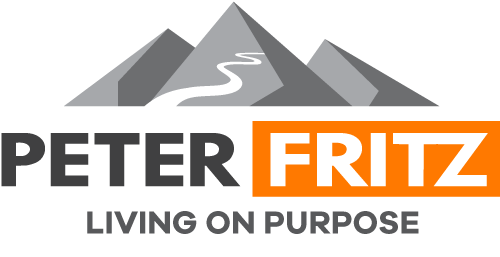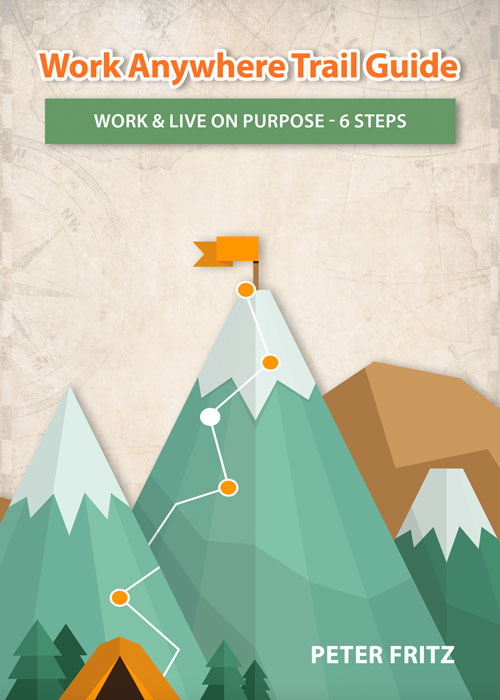We humans are ridiculous. Collectively, we’ve solved thousands of problems – from refrigeration, indoor plumbing and cheap transportation, to water-efficient agronomy, video conferencing and global access to knowledge – yet as individuals, we’re scared.
Each of us has a device in our pocket (or more likely, in our hand) that contains the answer to every question we care to ask it. With just a few taps, it’ll show us how to be healthy, how to make money and invest it, how to manage our time, and how to live a balanced, meaningful and happy life. It’s all there, yet at the moments of impact, we remain scared.
Many of our beliefs and values, often decades or even centuries old, come from eras so far removed from today’s realities, that when examined in isolation, they seem ridiculous. Yet we cling to them.
Take neckties. A group of Croatian mercenaries who served in France during the Thirty Years’ War of 1618 to 1648 used small pieces of fabric to tie the top of their jackets. Their boss, King Louis XIII, like them so much he made them mandatory attire at royal gatherings.
So, because the Croats hadn’t figured out a way to button their jackets, and because the French king at the time was a budding fashionista (influencer?), we decided it would be a good idea to strangle ourselves from Monday to Friday – despite the fact our jackets and shirts have had top buttons for centuries.
My point is two-fold.
- The beliefs we hold, hold us.
- The means to live a better life is unique to this century.
Let’s look at the first one a bit more.
I grew up believing rich people were shifty. If you were a millionaire, you must have done something immoral to get there.
Maybe you charged customers for ten cubic metres of cement when their garage only required seven. Maybe you sold insurance policies that paid the highest commission rather than the ones your clients needed. If you were a multi-millionaire, then you were almost certainly a crook – probably the head of an underworld crime ring.
This belief held me back for many years by preventing me from learning the skills, doing the work and taking calculated risks to acquire wealth. It also risked sabotaging my efforts if I did acquire it.
Today, I know a number of multi-millionaires, and each of them is highly skilled, hardworking and honest. Some enjoyed a bit of luck along the way. Most suffered setbacks, too. All of them are what Gary Vaynerchuck calls macro patient/micro impatient. They play the long game, but in the moment, they work with intensity and focus.
There are lots of beliefs that hold us back:
- “Who am I kidding thinking I can write a book?”
- “I’m no good at presentations.”
- “No one in our family has ever been an investor.”
- “If I don’t stay back at work, they’ll think I lack commitment.”
- “I can’t raise my hand in the meeting – I’m only a mid-level employee.”
- “I’m too old to start a business.”
- “I’m too young to start a business.”
- “Once I get this promotion, I’ll be happy.”
Failed Workplace Paradigms
As you might know, I’ve worked outside a traditional office setting for decades. Millions do. Yet despite working with hundreds of people in the technology sector, I still see dozens who cling to beliefs like:
- Innovation happens in meetings.
- Open-plan offices inspire collaboration.
- Accountability happens only if staff are visible.
- We need an office.
- Relationships only develop in person.
- Remote workers can’t be fully trusted.
- If I want a promotion, I have to kiss the right arses.
The irony is, most of these people claim to believe that results are what count, that it doesn’t matter how or where you work, so long as you produce. Some are employees, but many are employers, too, and they should know better.
I’ve come up against these and many other false beliefs over the years, and the evidence doesn’t support them. Indeed, most of the A-game operators I know don’t wear ties, don’t drive to an office each day, and rarely attend meetings – at least not in person.
So how does this relate to my second point, that the means to live a better life are unique to this century?
Untethering the Industrial Revolution
I’ve been using a computer since the earliest days of the Internet, and right from the outset, I knew it would change everything. Mostly, I knew it would allow people like me to do at least some of their work from home. Prior to 1995, this was a pipedream. Today, it’s a compelling reality.
Twenty-five years ago, there was no escaping the industrial revolution. To work with a team, we usually needed to be in the same building. We passed documents to each other, we held meetings in person and we scribbled down notes from those meetings (which we later photocopied and distributed). We used snail mail and fax machines, and if we were really high-tech, we recorded videos on a proper video camera and burned the files to disc. Ah, the good old days.
Among the many downsides of that era was we hardly saw our families, we faked illnesses to make personal errands, and we committed ourselves to our jobs so completely, that the only chance to engage in other interests was on weekends or during our allotted annual leave. If we were really committed, we’d limit those, too.
That was my life last century. And boy, it feels Very Last Century.
Once the Internet and email became reliable (enough), my life changed. I saw – and thankfully, so did my boss – a way to be more effective, more engaged and more productive, by staying home.
Almost overnight, everything got better. I got more done. I enjoyed my work a whole lot more. I saved a tonne of time, money and stress. I also saw my little girls grow up. I went to all their concerts (you know, the ones where they stand on stage with no idea what to do), I nursed them through colds, took them to the doctor, and played with their Bratz dolls in the afternoons. I took them to school and went to all the parent-teacher interviews.
Quitting the daily commute gave me the time and headspace to pursue a few other interests as well – business and personal – plus it helped me develop skills I’d never have acquired in corporate HQ. I saved on taxes, lunches, clothes and car expenses. I gave away all my ties!
Ultimately, it gave me a better life.
Coronavirus Pandemic Triggers Major Shift
And now we’re facing a global pandemic with no cure in sight for at least a year – possibly much longer. So it turns out that beyond improving my life, working from home might save my life, too.
For a long time, now, I’ve advocated for remote work and the many benefits it offers. Over the last couple of weeks, people have reached out to me regarding the Coronavirus, and how the ideas I share will probably get a boost from the current crisis. It’s true, a lot more people are working from home because of Covid-19.
However, I maintain that it’s a bit like waiting for a windfall before buying a dishwashing machine. You know it’ll make everyone’s life better, so why wait until Auntie Mable falls off the perch before getting one?
Remote work is no different. The Coronavirus is making everyone sit up and re-evaluate what they can do from home instead of the office. But when a cure is delivered, the core reason will remain.
Working remotely delivers a better life.
Stay safe.
![]()
Other Useful Posts
Working from home might save your life (and not just because of Coronavirus).
How Working from Home Helped me Connect with my Kids
Earn the right to work from home – what it takes.
With these tools, you can work from almost anywhere.
Why it’s Pointless Comparing Yourself to Others
What it really means to live on your terms.
The Ultimate Goal – A Dedication to Jon James
Yesterday, a giant in my life called up to offer his final farewell. Today, he married his true love, Aurelia, before entering palliative care. He’s only 64, he’s athletic, and he's stronger than most 30-year-olds. But when cancer takes hold, it doesn’t care. Jonathon...
What are the first steps to starting a side business that makes you money?
[fusebox_track_player url="https://www.buzzsprout.com/1079927/5461972-what-are-the-first-steps-to-starting-a-side-business-ep-115.mp3?blob_id=22247092&download=true" title="What are the first steps to starting a side-business? - EP 115" social_linkedin="true"...
The purpose of purpose
[fusebox_track_player url="https://www.buzzsprout.com/1079927/5195959-the-purpose-of-purpose-ep-114.mp3?blob_id=20946406&download=true" title="The Purpose of Purpose - EP 114" social_linkedin="true" social_email="true" ]Recorded with SquadCastSubscribe: iTunes |...
Download the Guide





